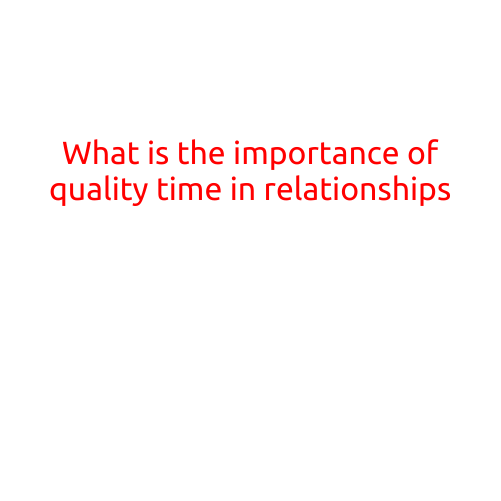
How to Tell if You’re Being Taken for Granted
Are you feeling like you’re always giving and never receiving in your relationships? Maybe you’re consistently sacrificing your own needs and desires for the benefit of others, only to feel unappreciated and underappreciated in return. If this sounds familiar, you might be wondering: am I being taken for granted?
In this article, we’ll explore common signs of being taken for granted and provide tips on how to recognize and address the issue.
Signs You’re Being Taken for Granted
- You’re always doing things for others: Are you the one who always volunteers to help with tasks, errands, and responsibilities? If you constantly find yourself putting others’ needs before your own, it may be a sign that you’re being taken for granted.
- You’re not valued or appreciated: Do you feel like your efforts and contributions go unnoticed or unappreciated? If you’re consistently dismissed or ignored, it can lead to feelings of resentment and frustration.
- You’re expected to sacrifice your own needs: Are you often asked to put others’ needs before your own, even if it means sacrificing your own well-being or happiness? This can be a sign that you’re being taken for granted and your boundaries are being disrespected.
- You’re feeling exhausted and burned out: Are you feeling drained and fatigued from always putting others first? This can be a sign that you’re carrying too much emotional or physical burden and need to re-evaluate your relationships.
- You’re losing your sense of identity: Are you feeling like you’re disappearing in your relationships? If you’re always catering to others’ needs and forgetting about your own, you may be losing your sense of self and identity.
How to Recognize You’re Being Taken for Granted
- Take a step back and reflect: Take some time to reflect on your relationships and identify patterns of behavior. Ask yourself: Am I always putting others first? Am I consistently sacrificing my own needs?
- Communicate your needs: Be open and honest with your partner, friends, or family members about your needs and boundaries. Let them know what you’re comfortable with and what you’re not.
- Set clear boundaries: Establish and communicate your boundaries clearly. This doesn’t mean being selfish, but rather setting healthy limits to maintain your own well-being.
- Practice self-care: Make time for activities that nourish your mind, body, and soul. This can help you recharge and maintain your sense of identity.
- Re-evaluate the relationship: If you find that you’re consistently feeling taken for granted or undervalued in a relationship, it may be time to re-evaluate whether it’s healthy and sustainable for you.
What to Do If You’re Being Taken for Granted
- Have an open and honest conversation: Approach the conversation with empathy and assertiveness. Let your partner know how you’re feeling and why you need change in the relationship.
- Practice assertive communication: Learn to communicate your needs and boundaries in a clear and respectful manner.
- Set consequences: Let your partner know what consequences will ensue if they continue to take you for granted. Be specific and firm, but also open to compromise.
- Seek support: Reach out to friends, family, or a therapist who can provide emotional support and guidance as you work to address the issue.
- Prioritize your own needs: Remember that your well-being is just as important as anyone else’s. Prioritize your own needs and make decisions that align with your values and goals.
Conclusion
Being taken for granted can be a frustrating and draining experience. By recognizing the signs and taking steps to address the issue, you can reclaim your sense of identity, establish healthy boundaries, and nurture relationships built on mutual respect and appreciation. Remember, prioritizing your own needs is not selfish – it’s essential for maintaining your overall well-being and happiness.





